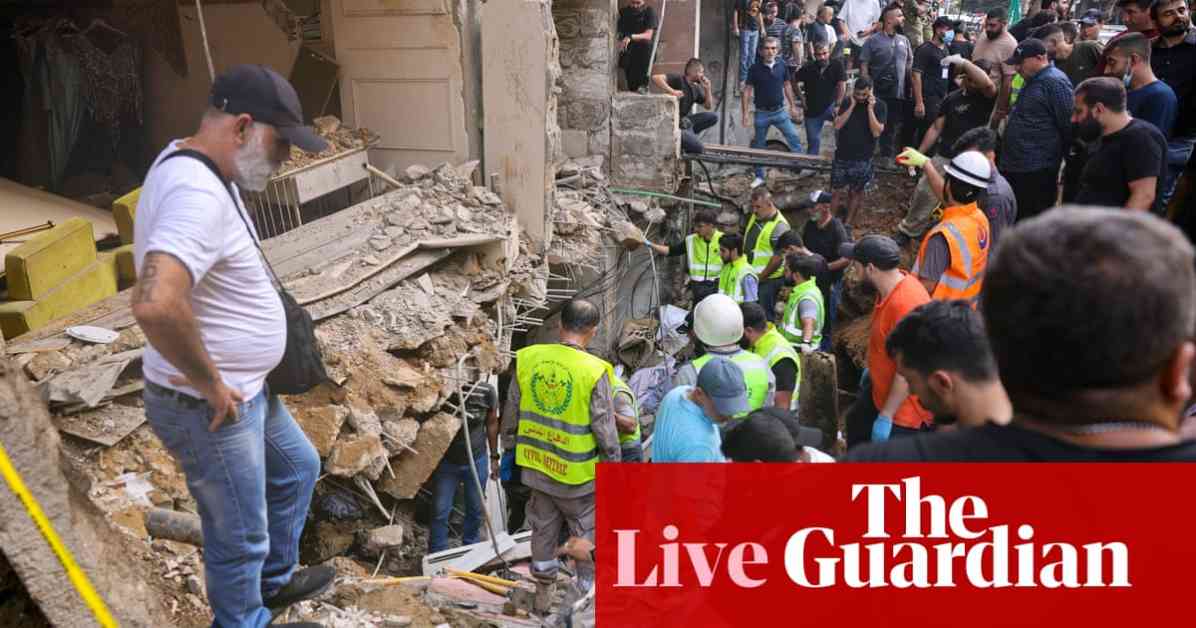Top Hezbollah Commander Ibrahim Aqil Killed in Israeli Airstrikes on Beirut
In a tragic turn of events, top Hezbollah commander Ibrahim Aqil was killed in an Israeli airstrike in southern Beirut on Friday. This news, reported by Reuters and confirmed by the Israel Defense Forces (IDF), has sent shockwaves across the Middle East, escalating tensions in the region.
Aqil, also known as Tahsin, was a key figure within the Hezbollah organization, serving as the head of the Radwan unit and the acting commander of the special forces. The targeted strike, which took place during a meeting of the elite Radwan unit, resulted in the elimination of Aqil and other high-ranking members of the group.
US Designation as a Global Terrorist
The US Department of Justice had previously designated Aqil as a global terrorist for his alleged involvement in the 1983 US embassy bombings in Beirut, which claimed the lives of 63 individuals, as well as the US Marine barracks attacks that resulted in the deaths of 241 US personnel. Additionally, Aqil was accused of directing the kidnapping of American and German hostages in Lebanon during the 1980s.
The Loss of Lives and Escalating Violence
The airstrike not only claimed the life of Aqil but also resulted in the deaths of eight individuals and left nearly 60 others wounded in Beirut. Among the casualties were five children, highlighting the devastating impact of the attack on innocent civilians in the area.
The aftermath of the strike has further fueled tensions between Israel and Hezbollah, with both sides engaging in retaliatory measures. Hezbollah launched more than 100 rockets towards northern Israel, prompting a swift response from the Israeli military. The escalation of violence has raised concerns about the potential for further casualties and the destabilization of the region.
International Condemnation and Calls for De-escalation
Iran, a key ally of Hezbollah, condemned Israel’s actions in Beirut, denouncing what it described as “Israeli madness and arrogance.” The Iranian embassy in Lebanon expressed solidarity with the Lebanese people and called for an immediate end to the violence that has claimed numerous lives and caused widespread destruction.
Amidst the escalating conflict, the United Nations peacekeepers in Lebanon have urged all parties to prioritize diplomacy and seek a peaceful resolution to the crisis. The international community has echoed these sentiments, emphasizing the need for de-escalation and dialogue to prevent further bloodshed and suffering.
Challenges to ICC and Contingency Plans
In a separate development, Israel has submitted formal challenges to the International Criminal Court (ICC) regarding arrest warrant requests against Israeli leaders for their conduct during the Gaza war. The legal filings aim to contest the ICC’s jurisdiction and the legality of the arrest warrants, further complicating the already contentious issue.
Meanwhile, British officials are scrutinizing contingency plans for the evacuation of remaining Britons from Lebanon, following heightened hostilities with Israel. The UK Foreign Secretary is leading efforts to ensure the safety of British nationals in the region and prevent a potential humanitarian crisis.
Calls for Accountability and Restoring Stability
As the situation in the Middle East continues to escalate, calls for accountability and justice have grown louder. The US Department of Justice has offered a $7 million reward for information on Ibrahim Aqil, underscoring the importance of holding individuals responsible for acts of terrorism accountable.
Amidst the chaos and violence, there is a pressing need for a negotiated solution to restore stability and security in the region. Diplomatic efforts must be prioritized to prevent further loss of life and mitigate the humanitarian impact of the conflict on innocent civilians caught in the crossfire.
Conclusion
The death of top Hezbollah commander Ibrahim Aqil in Israeli airstrikes on Beirut has sparked a renewed wave of violence and instability in the Middle East. As the international community grapples with the repercussions of these targeted strikes, efforts to de-escalate tensions and seek a peaceful resolution to the crisis have never been more critical. Only through dialogue, diplomacy, and a commitment to upholding human rights and international law can lasting peace be achieved in the region.












